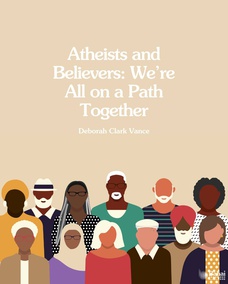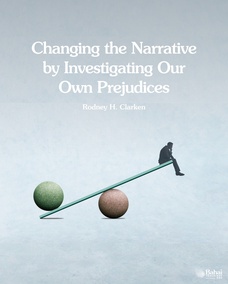The views expressed in our content reflect individual perspectives and do not represent the authoritative views of the Baha'i Faith.
A cold-blooded calculation of expediency will not inspire us with the spiritual power to save ourselves. This power can come only from the disinterested pursuit of a positive aim that will outrange the negative one of trying to avoid self-destruction. – Arnold Toynbee
We all want world peace, but we cannot have it without good government, a government based upon the ideal of justice. Political structures with the more ephemeral pseudo-values based on expediency and the desire for material prosperity do not endure for long by historical standards, and fall far short of the needs of an evolving world order.
We can’t just seek to avoid war—we must have a vision of the future to work for, a concept of fair dealing that will satisfy the peoples of the world by providing dependable and universal security. When we look into the Baha’i writings for the basic principle of just government, we find the Golden Rule, that same ancient and enduring set of scales. Baha’u’llah advises the kings of the world
Do not rob them [the peoples of the world] to rear palaces for yourselves; nay rather choose for them that which ye choose for yourselves. – The Proclamation of Baha’u’llah, p. 12.
The weight of the rulers’ desires for themselves must balance against the weight of the needs of their people.
In our time, the Baha’i teachings say that the golden rule is no longer a rule that applies simply to relations between individuals. It is the basis of relationships between genders, between whole racial and cultural groups, the basis of the relationship between the governed and the governors, the relationship between rich and poor. This, I would suggest, forms the foundation underlying the Baha’i belief that humanity must find a spiritual solution to its economic problems:
Great is the blessedness awaiting the poor that endure patiently and conceal their sufferings, and well is it with the rich who bestow their riches on the needy and prefer them before themselves. – Gleanings from the Writings of Baha’u’llah, p. 201.
Abdu’l-Baha said that humanity can solve the problem of extremes of wealth and poverty by voluntary giving and sacrifice on the part of the rich, and not by forcible redistribution of wealth. Taking from the rich by force and giving to the poor, satisfying though it may be in the short term, does not create a society which has learned to think in such an empathetic way that the mere idea of one of its members being in need is a painful thing. Abdu’l-Baha creates a picture of our current society, rhetorically asking:
Is it possible for one member of a family to be subjected to the utmost misery and to abject poverty and for the rest of the family to be comfortable? It is impossible unless those members of the family be senseless, atrophied, inhospitable, unkind. Then they would say, ‘Though these members do belong to our family – let them alone. Let us look after ourselves. Let them die. So long as I am comfortable, I am honored, I am happy – this my brother – let him die. If he be in misery let him remain in misery, so long as I am comfortable. If he is hungry let him remain so; I am satisfied. If he is without clothes, so long as I am clothed, let him remain as he is. If he is shelterless, homeless, so long as I have a home, let him remain in the wilderness.’
Such utter indifference in the human family is due to lack of control, to lack of a working law, to lack of kindness in its midst. – Foundations of World Unity, p. 39.
The Baha’is aim for kindness and a working law, not a simplistic and unachievable utopia with strictly policed equal pay for all. The abolition of the extremes of wealth and poverty will be a symptom of good spiritual health in society—it is not itself the cure.
The Balance of Reason
We can all see the connection between the principle of justice and the social and political well-being of humankind. However, a relationship also exists between the essential concept of justice and the more abstract, intellectual teaching of the harmony of science and religion. Albert Einstein remarked that “Religion without science is blind. Science without religion is lame.” Abdu’l-Baha has told us to “Weigh carefully in the balance of reason and science everything that is presented to you as religion. If it passes this test, then accept it, for it is truth!” – Paris Talks, p. 144. The converse is also true. We should weigh everything presented to us as science in the light of the moral and spiritual understanding brought to us by religion, and see if it passes the test. If it does not, we will have reason to suspect that we are dealing with “scientism” rather than science.
William Hatcher makes the distinction between science and “scientistic activity” such as so-called “scientific racism”, where “psychologists have given illogical, scientifically unfounded, and, in some instances, provably false interpretations of test data involving I.Q. scores and claim thereby to have “proven’ the genetic, intellectual inferiority of certain races and classes of people.” A reciprocal relationship exists between our understanding of the Word of God and our study of science. If we only look at the world through one eye—that of religion, or that of science—we will have a one-dimensional, distorted, untruthful picture of reality. Instead, the Baha’i teachings ask us to use our reason to judge correctly, and to assess what we see with the eye of justice.
Armed with both the warmth of empathy and the power of reason, we will develop honest solutions to the miseries of an unjust society.
















Comments
Sign in or create an account
Continue with Googleor